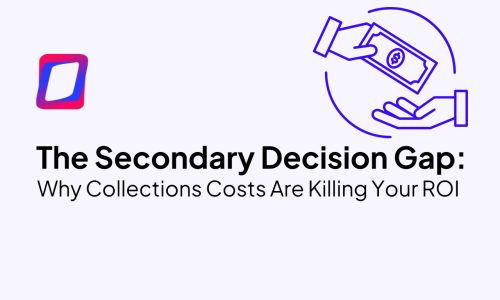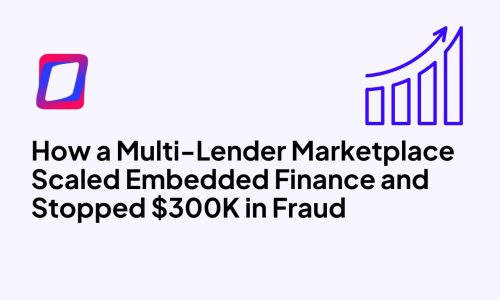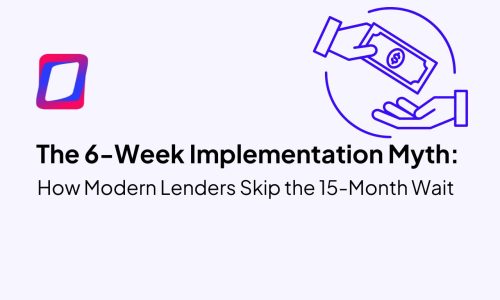How Alternative Data Transforms Lending
Alternative data not only makes credit more accessible, but also equitable for potential borrowers. It’s time to implement it.
Lenders today are increasingly turning to alternative data to make more informed decisions. Unlike traditional credit bureau data, which relies heavily on historical credit behavior documented by major credit reporting agencies, alternative data encompasses a broader spectrum of information. This includes bank transaction data, rental payment history, and utility payment history. Such data paints a more comprehensive picture of an individual’s financial habits and responsibilities, offering a nuanced view that traditional credit scores might miss.
Growing Adoption Among Lenders
Lenders are increasingly recognizing the value of alternative data. As they seek more accurate and inclusive methods to assess creditworthiness, adopting alternative data sources is on the rise. This shift is driven by the realization that traditional credit data often falls short in capturing the complete financial behavior of potential borrowers, especially those with thin or no credit files. Lenders can make more informed decisions by incorporating alternative data, leading to better risk management and expanded lending opportunities.
Examples of Alternative Data Sources
Alternative data sources are varied and provide rich insights into an individual’s financial stability and habits. Some prominent examples include:
- Bank Transaction Data: Provides a detailed view of an individual’s income, expenses, and savings habits.
- Rental Payment History reflects a person’s ability to meet regular payment obligations, which are often a significant part of their monthly expenses.
- Utility Payment History: Another indicator of consistent financial responsibility showing regular payment of essential services.
Expanding Access Responsibly
By integrating alternative data into their decision-making processes, lenders can offer credit to individuals who traditional credit models might otherwise overlook. This approach helps identify creditworthy individuals among underserved populations, promoting financial inclusion. To ensure responsible use, lenders must implement rigorous standards and practices. These measures ensure that alternative data is fair and transparent, ultimately leading to a more inclusive and equitable financial system.
Future Potential Through Open Banking and Partnerships
The future of alternative data looks promising, particularly with open banking and strategic partnerships. Open banking initiatives, which promote sharing financial data through secure APIs, are set to unlock new data sources.
These initiatives will enable lenders to access a wider array of financial information, further enhancing their ability to assess credit risk accurately. Partnerships between fintech companies and traditional financial institutions will also play a pivotal role in this evolution, driving innovation and expanding the use of alternative data.
Despite its potential, there are still barriers and skepticism to overcome. Concerns about data privacy, security, and the potential for misuse of information persist. Lenders and data providers must work together to address these issues, ensuring robust safeguards are in place.
Transparency in using alternative data and clear communication with consumers about their rights is essential to building trust and confidence in these new methods.
Leveraging Alternative Data: How GDS Link Enhances Credit Decisioning and Expands Access to Credit
GDS Link is at the forefront of leveraging alternative data to enhance credit decisioning and risk management. Our advanced decisioning platform integrates various alternative data sources, providing lenders with a comprehensive view of potential borrowers. This approach improves the accuracy of credit assessments and expands access to credit for individuals who might be underserved by traditional credit scoring models.
How GDS Link Can Help Your Institution:
- Customizable Solutions: Our decisioning platform can be tailored to meet your institution’s specific needs, whether you’re looking to enhance existing credit models or implement entirely new ones based on alternative data.
- Expert Support: GDS Link offers expert support to help you navigate the integration of alternative data into your credit decisioning processes.
- Proven Results: By incorporating alternative data through GDS Link’s platform, our clients have seen significant improvements in approval rates, credit performance, and customer satisfaction.
By partnering with GDS Link, lenders can harness the power of alternative data to drive growth, improve risk management, and expand access to credit responsibly and competently.
CEO of Nova Credit Talks Financial Inclusion and the Future of Credit Data
To delve deeper into the transformative impact of alternative data in the industry, we recently sat down with Misha Esipov, the CEO and co-founder of Nova Credit. In our discussion, Misha shares insights on how Nova Credit is pioneering using alternative data to promote financial inclusion. Listen to the full conversation here:
Recent articles

The Secondary Decision Gap: Why Collections Costs Are Killing Your ROI
Read article
How a Multi-Lender Marketplace Scaled Embedded Finance and Stopped $300K in Fraud
Read article





